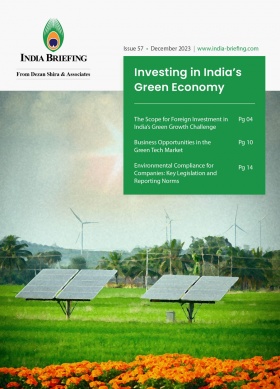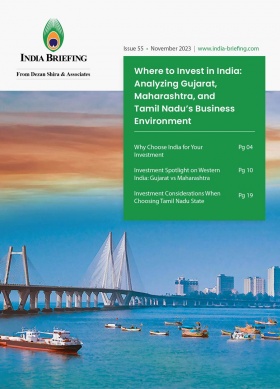Third-Party Logistics to Continue Pushing Up Leasing Demand in India in 2024: CBRE Report
The demand for leasing high-quality warehousing space in India is expected to remain robust throughout 2024, according to a recent report from real estate consultant CBRE, which anticipates that space take-up will stay within the range of 2023 levels. Key transaction activity is projected to be driven by industrial and logistics sectors in Mumbai, Delhi-National Capital Region (NCR), Bengaluru, and Chennai, with the possibility of improved leasing volumes in markets like Ahmedabad and Pune.
Despite global and domestic macro-economic uncertainties, a report by the US-based commercial real estate services and investment provider CBRE titled ‘India I&L Outlook 2024’ suggests that the leasing demand for high-quality warehousing space in India—emphasizing operational efficiencies, safety compliance, and improved contingency planning—is expected to remain robust throughout 2024.
Logistics, warehousing leads demand for leasing
Leasing activity in key cities in 2023
The leasing of industrial and logistics spaces in Mumbai reached a record-breaking 9.9 million square feet in 2023, surpassing the 7.3 million square feet recorded in the preceding year. In Hyderabad, the demand grew from 3.7 million square feet in 2022 to 4.3 million square feet in 2023.
Leasing of industrial and logistics spaces in Chennai rose from 3.9 million square feet in 2022 to 6 million square feet in 2023. In Pune, leasing increased from 0.7 million square feet to 1.7 million square feet. The demand for industrial and logistic warehousing spaces in Ahmedabad also saw growth, reaching 2.2 million square feet last year from 1.2 million square feet in 2022.
However, in Delhi-NCR, the demand dropped to 7 million square feet in the past year, down from 9.4 million square feet in the calendar year 2022. Bengaluru also experienced a decrease to 4.7 million square feet in 2023 from 5.9 million square feet in the preceding year. Similarly, Kolkata observed a decline to 3 million square feet from the earlier 3.8 million square feet.
2024 investor outlook
Per the CBRE report, the completion of new warehousing projects might experience a slight delay in tier-2 cities due to escalating land costs and prolonged acquisition timelines.
Nevertheless, capital inflows from both foreign and domestic investors are expected to persist for greenfield and brownfield acquisitions. Joint ventures and joint development agreement partnerships are anticipated to remain the primary investment channels for investors with a focus on infrastructure and leasing.
CBRE anticipates a continued rise in the proportion of projects completed by major developers supported by institutional funds in India.
Furthermore, as as more MNCs pledge to achieve decarbonization and carbon neutrality and the imperative to decrease carbon emissions intensifies, adherence to environmental, social, and governance (ESG) standards will be an influential factor in infrastructure building and leasing activity. CBRE expects developers with investment-grade credentials in India to collaborate with occupiers in working to decrease energy consumption levels and implement sustainable practices in warehouse operations.
About Us
India Briefing is produced by Dezan Shira & Associates. The firm assists foreign investors throughout Asia from offices across the world, including in Delhi and Mumbai. Readers may write to india@dezshira.com for more support on doing business in India.
We also maintain offices or have alliance partners assisting foreign investors in Indonesia, Singapore, Vietnam, Philippines, Malaysia, Thailand, Bangladesh, Italy, Germany, and the United States.
- Previous Article Leveraging Section 80EEB: Tax Benefits for Businesses on Electric Vehicle Loans
- Next Article Business Opportunities in India’s Green Tech Market









